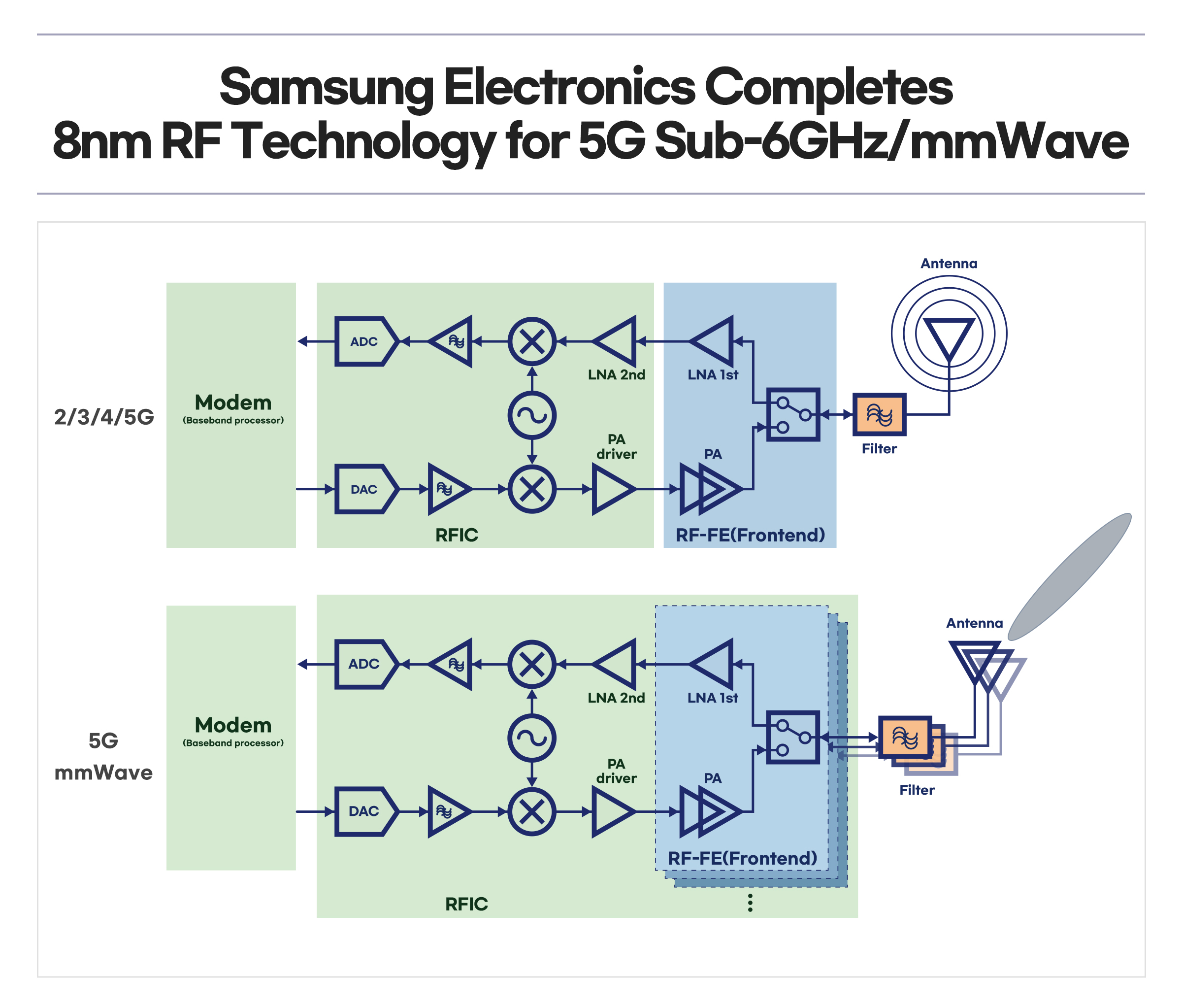In what is seen as a major boost for 5G mobile communication, Samsung has announced that its foundry division has developed an 8-nanometer (nm) process technology for radio frequency (RF) chips.
This foundry technology will provide single chip RF solutions, specifically for 5G communications. Samsung’s 8nm RF platform extension is expected to expand the company’s leadership in the 5G semiconductor market from sub-6GHz to mmWave applications.
Samsung claimed its 8nm process will improve power efficiency by 35% and also reduce chip area by 35% compared with the 14nm process.
The RF chip converts the digital signal from the modem chip into analog, converts it into a radio frequency that we can use, and also transmits it to the modem chip. It consists of a logic circuit area for frequency band change and digital-analog signal conversion, and an analog circuit area for frequency reception and amplification.
- Samsung develops AI processor-embedded memory chip
- Samsung to take chip war to TSMC with $116 billion investment
8nm RF will use less power

Hyung Jin Lee, Master of Foundry Technology Development Team at Samsung Electronics, said: “As 5G mmWave expands, Samsung’s 8nm RF will be a great solution for customers looking for long battery life and excellent signal quality on compact mobile devices.”
Samsung said it has developed a new architecture, named RF extreme FET (RFeFET), exclusive to 8nm RF that can significantly improve RF characteristics while using less power.
It claimed that this will help bring down the number of transistors and power consumption, while reducing the area of an analog circuit.
Samsung first started its RF foundry service in 2015 with 28nm process. It then produced 14nm-based RF. The company has shipped more than 500 million mobile RF chips for premium smartphones since 2017.
Samsung hopes the latest technology can further consolidate its position in the contract chipmaking sector.
Samsung is currently the world’s largest maker of computer memory and displays, but now wants to be a dominant player in the $250 billion foundry and logic-chip industry, which is expected to see heightened action thanks to the developments in artificial intelligence and fifth-generation wireless technology.
from TechRadar - All the latest technology news https://ift.tt/2TWchvf

